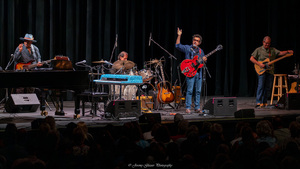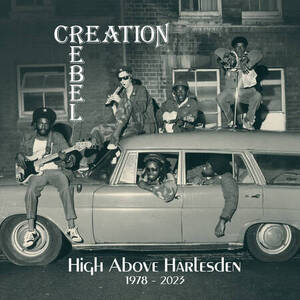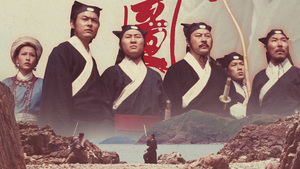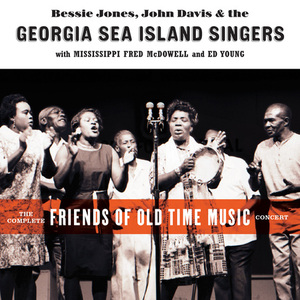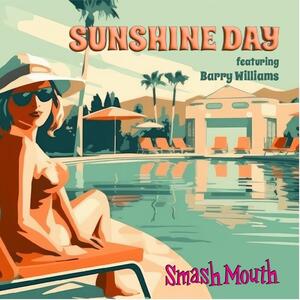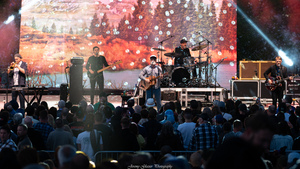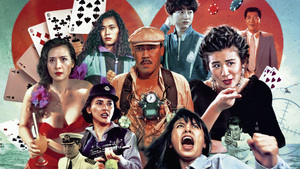
U2: Let Them Be – The Second Chapter
Executive Producers: Rob Johnstone, Andy Cleland
starring U2, Mark Wrathall, Angus Batey, Nigel Williamson, Stuart Bailie, Paul Gambaccini, Mat Snow, Andrew Mueller, Lucy O’Brien, John Hutnyk, Gavin Martin, Simon Osborne, Johnny Rogan, John Street
Chrome Dreams
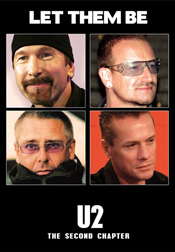
Let Them Be is a pair of fairly well done “unauthorized” documentaries about two distinct periods in the history of these Irish superstars. The first takes us back to 1991’s Achtung Baby to assess the band’s first attempt at reinvention following the epic pomposity of Rattle and Hum. The second looks at their post-millennial comeback with All That You Can’t Leave Behind and How to Dismantle an Atomic Bomb. While inessential for all but the most hardcore U2 fan, this two-DVD set does do a good job of making you want to listen to those records with new ears and re-evaluate them within the context of the times and their chronology in the band’s career.
The first of the two DVDs is entitled U2: Achtung Baby: A Classic Album Under Review. It intersperses clips of the band from their live performances with interviews with rock journalists and writers. Among those we hear from are former Mojo editor and Andy Partridge look-alike Mat Snow and George Harrison look-alike Nigel Williamson.
These talking heads offer some interesting insights and long forgotten facts about the band, the record, and the times. Among them: • U2 recorded the album in Berlin, as the Berlin Wall was coming down. • They recorded in Hansa Studios, where David Bowie and Brian Eno cut the so-called “cocaine and paranoia” album trilogy of Low, “Heroes” and Lodger back in the ’70s. (One of the rock critics interviewed suggests playing Achtung Baby side by side with “Heroes”, which sounds like one of those cool record geek things I’ll probably never get around to doing like cueing up Dark Side of the Moon to the start of The Wizard of Oz.) • The Manchester scene with bands like The Stone Roses and Happy Mondays may have influenced the record’s more groove-oriented moments. • The title of the album was likely inspired by a line from Mel Brooks’ The Producers.
We’re also reminded that Bono was discovering irony at the time and trying on new personae in the new songs. But the longtime do-gooder received some criticism for proclaiming that “a conscience can sometimes be a pest” on the album’s unexpected first single “The Fly.”
Of the album’s other tunes, we learn that: • “Zoo Station” is a subway station in Berlin that is halfway between the stop where the opera house is and the stop that is a center for the city’s counterculture. • With a remix by Paul Oakenfold, “Even Better Than the Real Thing” gave U2 its first real dance hit. • “One” was the song that gelled the band at a time there was a split between them with Bono and The Edge on one side and Adam Clayton and Larry Mullen Jr. on the other. It has become a song popular at weddings despite dark lyrics like “You gave me nothing now it’s all I’ve got.” • “Until the End of the World” is told from the perspective of Judas Iscariot, attempting to justify his actions in a conversation with Jesus. • Bono’s singing on “So Cruel” may have been influenced by crooners like Scott Walker, an American expat who oddly became part of the ’60s British invasion and recorded great doomed romantic classics like “The Sun Ain’t Gonna Shine Anymore.” • Live performances of “Mysterious Ways” at the time featured a belly dancer, who The Edge ended up later marrying. • “Love Is Blindness” is the sound of The Edge, who had gone through a painful divorce before taking up with the belly dancer, playing his heart out.
The rock critics interviewed also remind us that what made Achtung Baby such an interesting and timeless record is that the songs can be read as being about faith in love or faith in God and for the first time in the band’s career, that faith was wavering.
Disc two in the set is entitled The Rebirth of Cool: U2 in the Third Millennium: A Review and Critique. Broader in scope than the first, it tackles not only the band’s first two post-millennium efforts but also tangents and side projects like The Million Dollar Hotel, a poorly received Wim Wenders film that Bono had sketched out the idea for and that starred a Mel Gibson called, in a typically profane moment, “as boring as a dog’s ass.” Well, at least clips from the film do give us a glimpse of a pre-_Lost_ Jeremy Davies and the soundtrack features the band’s terrific “The Ground Beneath Her Feet,” with lyrics by Salman Rushdie and pedal steel by Daniel Lanois.
There are also clips here from a 60 Minutes interview with the band conducted by the late Ed Bradley. During one interesting segment, The Edge talks about why he’s never really considered doing a solo project. (He’d just end up reconstituting the band).
There are plenty more live clips of the band as well, most of which don’t last long enough but do whet the appetite for more. We also learn a bit more about the band’s collaborators, including Brian Eno, seen in a cool vintage clip wearing a ridiculous sparkly jacket in his Roxy Music days. One of the talking heads amusingly (but accurately) calls Eno “a great polymath… with a giant throbbing brain.”
Of the songs on the band’s 2000 album All That You Can’t Leave Behind, we learn that: • Although “Beautiful Day” was a brilliant first single and reintroduction to the band because of its uplifting quality, its bridge part bears a striking resemblance to “The Sun Always Shines on TV” by twinkie Norwegian pop band a-ha. • “Stuck in a Moment You Can’t Get Out Of” became a tribute to then-recently deceased INXS vocalist Michael Hutchence. • “Elevation” is also the title of a song by Television from the classic album Marquee Moon, which was a big influence on the band. Bono also uses several lines and song titles borrowed from Bob Dylan on the album.
The DVD reminds us that the events of 9/11 gave the album new life as music fans looked to the band and the album’s themes of death, hope, and righteous indignation. One journalist calls it “almost a compilation album of the 9/11 experience.” The song “New York,” which was Bono’s tribute to Lou Reed and Frank Sinatra, was among the songs that took on new meaning and seemed prescient in retrospect.
Of the songs on the band’s 2004 album How to Dismantle An Atomic Bomb, we learn that: • “Vertigo,” the album’s brilliant lead-off single, was The Edge wanting to find the perfect riff for the 21st century. One rock critic compares it to great punk-era singles like The Clash’s “Complete Control” and The Sex Pistols “Pretty Vacant.” Bono, in another clip from the 60 Minutes interview talks about how The Edge has created a whole different spectrum of feelings and colors the guitar is capable of. • “Sometimes You Can’t Make It On Your Own” is Bono’s song for his Dad, who had passed away. • “City of Blinding Lights” was inspired by U2’s first post-9/11 gig at New York’s Madison Square Garden and the energy they got from the crowd. • “Crumbs From Your Table,” a tune about third world debt relief among other things, is described as the album’s true masterpiece by former Mojo editor Snow.
In addition, the DVD also includes comments from Simon Osborne, who engineered the record and who offers some interesting insights on the recording process. We also see a clip of U2 playing Live 8 in 2005 with Paul McCartney and the video of the band’s collaboration with Green Day on “The Saints Are Coming.”
Let Them Be is ultimately a worthwhile ride for the ethnomusicologist and hardcore completist U2 fan alike. It will make you want to dig out your records all over again and watch your live DVDs, too. I, for one, look forward to the documentary about whatever the band does as a palette cleanser to follow last year’s bloated No Line On the Horizon and its career nadir first single “Get On Your Boots.” Because, as Snow puts it on disc two, “If they fail, they’re going to fail interestingly.”
Chrome Dreams: http://www.chromedreams.co.uk


